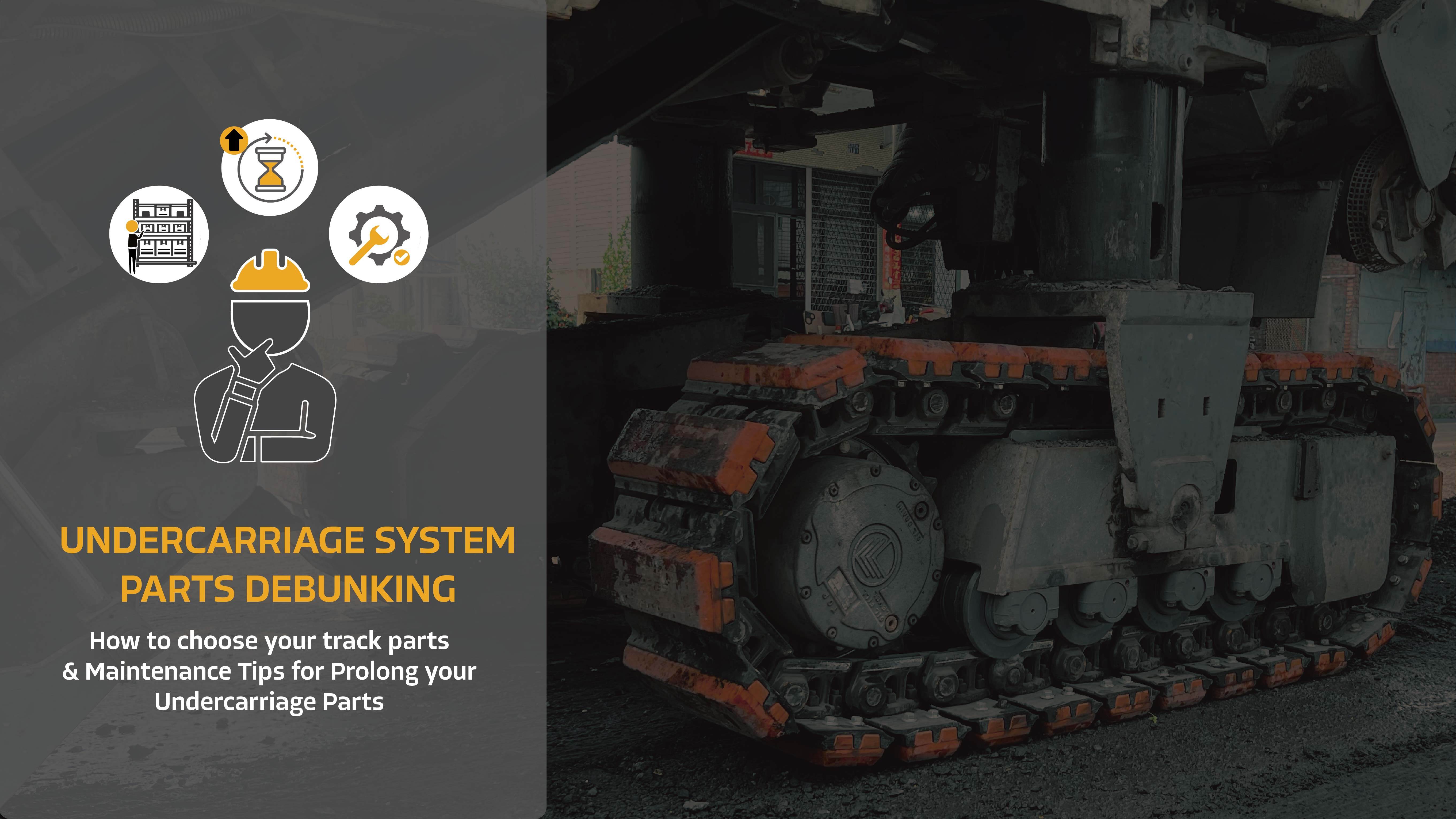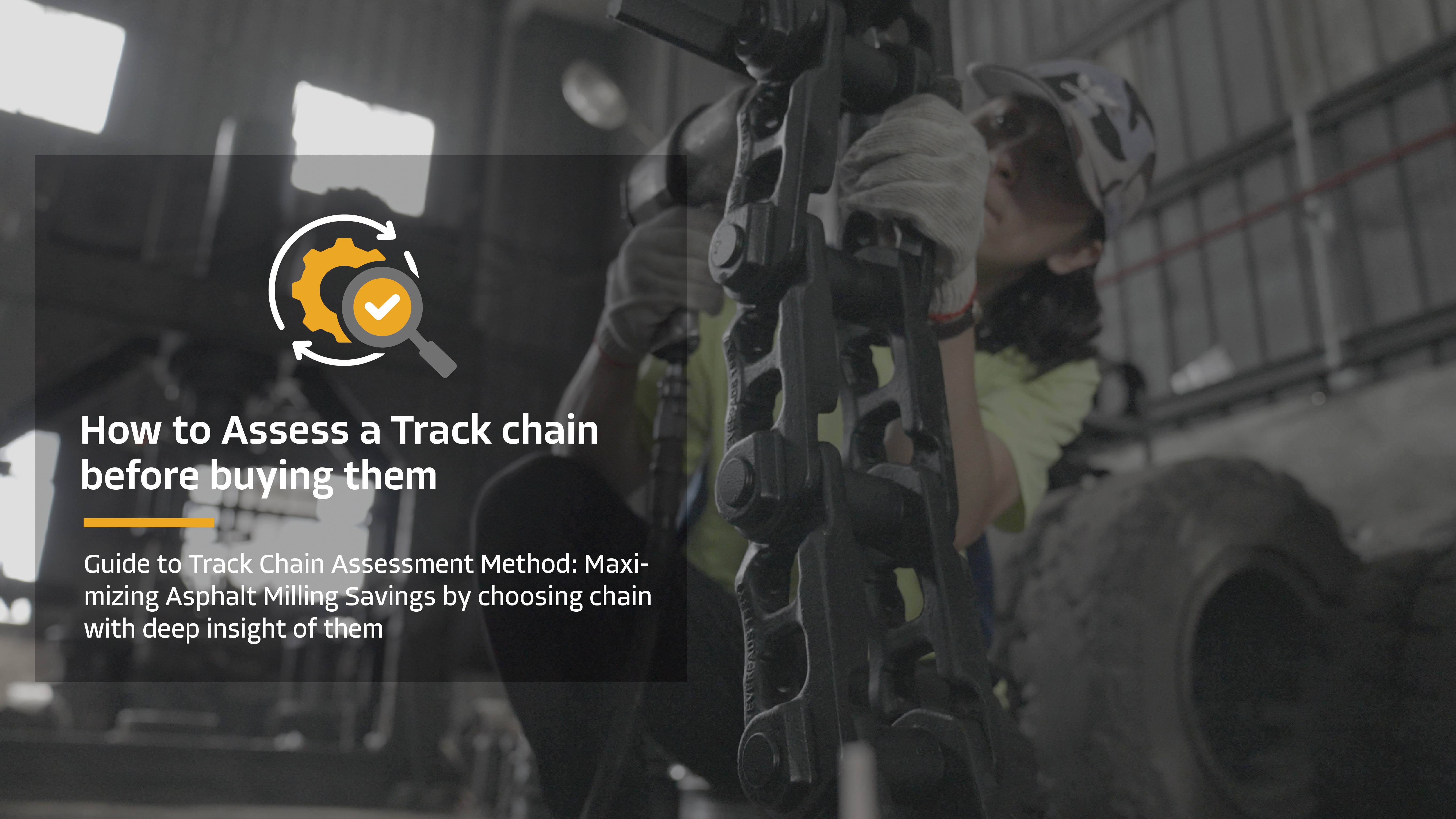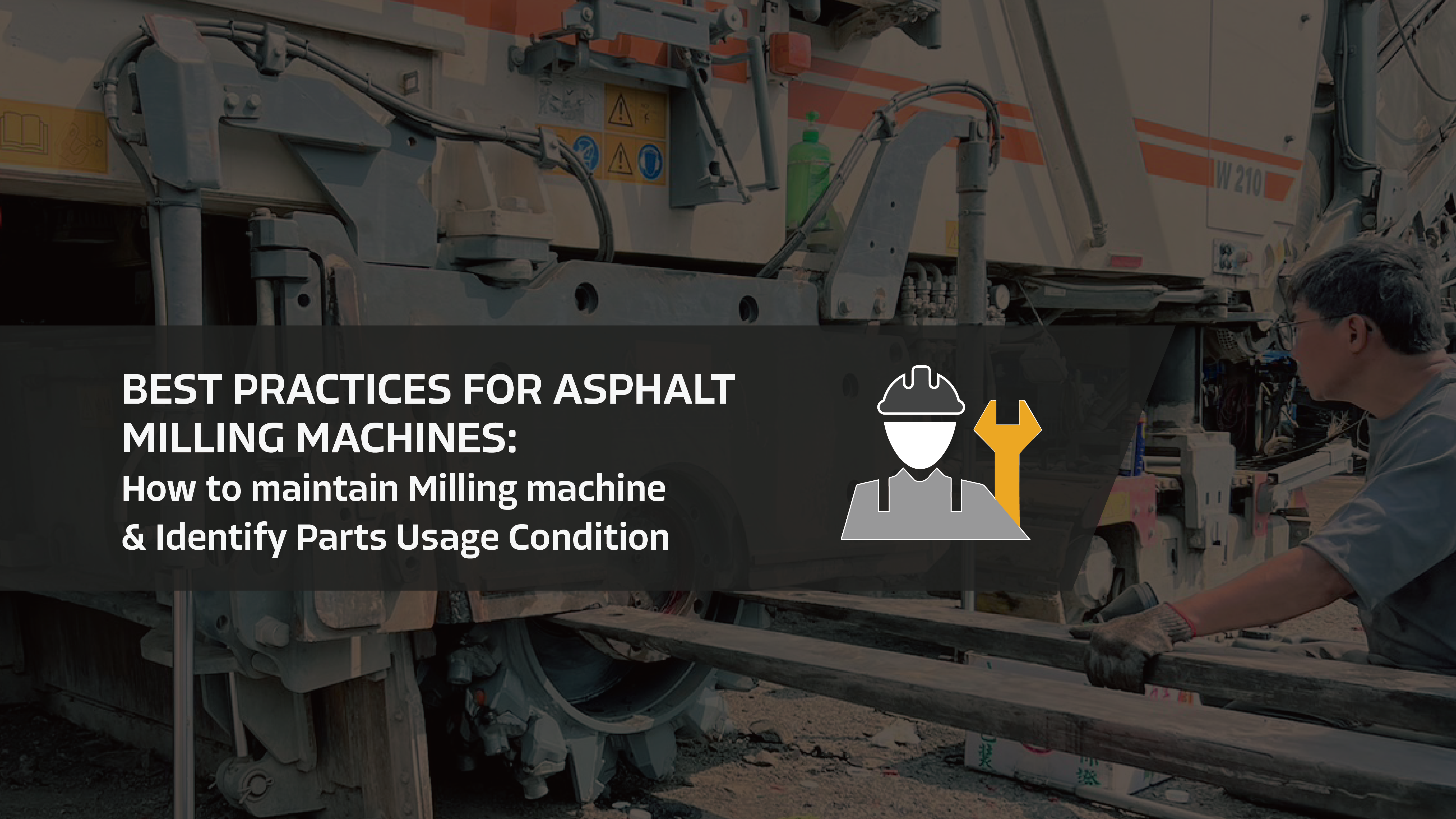Struggling with Track Chain Pin Hole Breakages on Your Asphalt Milling Machine? Discover the Cause and the Fix
18. Nov. 2024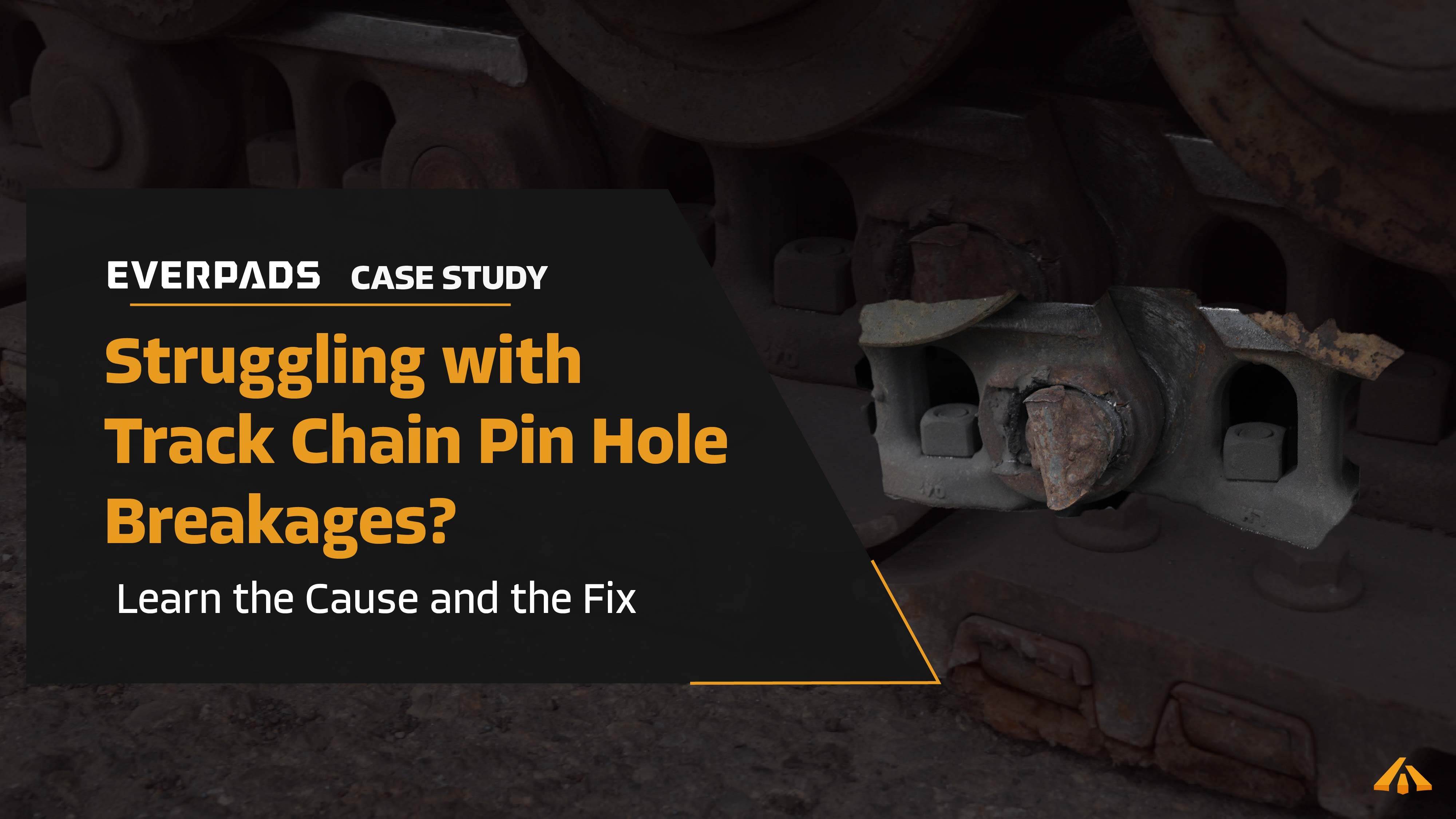
When it comes to track chains, pin hole failures are a frequent problem that operators face. As machines operate, the track chain rotates, subjecting the pins connecting each link to significant stress—especially when the chain lifts off the ground and just before it engages with the sprocket. This is when the highest shear forces are at play. Unfortunately, common track chains aren’t designed to handle these stresses effectively over the long term.
Potential buyers can gain access to professional milling solution insights from local dealers, ensuring they have the updated product needed for their heavy-duty projects.
In this post, we’ll dive into why pin hole failures occur, the impact they have on your operations, and how an innovative approach can offer a long-term solution.
Table of Contents:
1. Understanding Stress Distribution in Track Chains
2. The Cost of Overlooking Key Stress Points
3. Why Traditional Track Chains Are Prone To Breaking At the Pin Holes
4. Our Innovative Solution for Track Chains
Understanding Stress Distribution in Track Chains
The pin holes are the primary structural weak point in a track chain, making them the area most prone to deformation. Due to its geometry and placement, it’s particularly susceptible to failure. Here’s why pin holes are prone to premature wear and breakage:
- Bending Stress: As the track chain engages with the ground and then lifts off, the pin hole experiences significant bending stress. This cyclical stress can lead to fatigue in the material over time.
- Shear Stress: The relative movement between the pin and the pin hole generates shear stress. Prolonged shear stress exposure can cause micro-cracks to develop, eventually weakening the pin hole.
- Impact Stress: On uneven terrain or under high-load conditions, the pin holes endure intense, high-impact stress. These sudden, forceful impacts accelerate material fatigue and increase the likelihood of failure.
Together, these stresses make the pin holes the weakest point in the track chain, prone to fatigue cracking and eventual breakage.
 Typical pin hole breakage of a traditional track chain
Typical pin hole breakage of a traditional track chain
The Cost of Overlooking Key Stress Points
This oversight in design doesn’t only lead to increased downtime, frequent repairs, and rising maintenance costs. For operators, it can also mean disrupted schedules, decreased productivity, and higher expenses—all due to a flaw that could have been prevented with better engineering. Additionally, these unexpected failures pose serious safety risks. When a track chain or pin hole breaks under load, it can lead to sudden machine instability, increasing the likelihood of accidents on the job site.
By not addressing these key stress points, manufacturers leave operators exposed to preventable hazards, underscoring the importance of robust design for both operational efficiency and worker safety.
 Typical full breakage of a traditional track chain, posing significant safety risks
Typical full breakage of a traditional track chain, posing significant safety risks
Why Traditional Track Chains Are Prone To Breaking At the Pin Holes
Pin holes are the weakest points in track chains, subjected to high stress, wear, and material fatigue. Factors like insufficient lubrication, abrasive conditions, and manufacturing defects exacerbate these issues, often leading to premature failure. Understanding these challenges is key to improving durability and performance:
- High Stress Concentration: The pin holes in track chains are focal points for stress concentration. During operation, these areas endure significant cyclic loads, leading to material fatigue over time. This repeated stress can initiate cracks at the pin holes, eventually causing fractures.
- Wear and Tear: Continuous exposure to abrasive materials and harsh working conditions accelerates wear around the pin holes. As the holes enlarge or become misshapen, the pins may experience increased movement or misalignment, exacerbating stress and leading to potential failure.
- Insufficient Lubrication: Proper lubrication is crucial to minimize friction between the pins and the chain links. A lack of adequate lubrication increases friction, resulting in accelerated wear and higher operating temperatures. This combination can weaken the material around the pin holes, making them more prone to breaking.
- Material Fatigue: The repetitive loading and unloading cycles inherent in heavy machinery operations contribute to material fatigue. Over time, this fatigue can manifest as micro-cracks around the pin holes, which, if not addressed, can propagate and lead to complete failure of the track chain.
- Manufacturing Defects: In some cases, imperfections introduced during the manufacturing process, such as improper heat treatment or material inconsistencies, can compromise the integrity of the pin holes. These defects can serve as initiation points for cracks under operational stresses.
Learn how to assess track chain design and quality: Tips to Evaluate the Probable Performance of a Track Chain on Each Indicator
Our Innovative Solution: X-Type Track Chain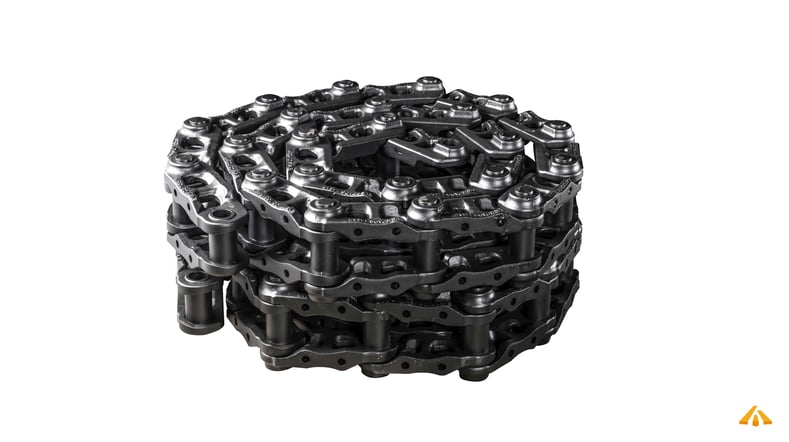
After years of research and testing, we’ve developed a robust solution to tackle the persistent issue of pin hole failures.
X-Type Track Chain Solution:
- Enhanced Pin Hole Thickness: Our advanced geometry increases pin hole thickness by 30%,
fortifying the areas most vulnerable to stress and delivering an impressive 800 kN tear resistance.
- Optimized Shape for Even Stress Distribution: We've integrated a steel ring within the pin hole to ensure uniform stress distribution. This patented design significantly enhances the structural integrity of our track chain.

- Forged for Durability: Our precision forging process, combined with ABP induction technology, deepens the wear resistance level. This ensures the track chain withstands heavy-duty usage and harsh conditions without compromising performance.
- Automated Defect Detection: Our advanced quality control system uses automated detection to identify defects early, ensuring only the highest quality chains reach our customers.
This innovation not only extends the track chain’s lifespan but also improves the reliability and efficiency of the machinery it powers. Our commitment to quality means operators of Cold Milling Machines can now rely on a track chain that truly meets the demands of modern equipment, without the worry of frequent pin hole failures.
Explore more about our X-type chain: Everpads X-type Track Chain for Cold Milling Machines
 X-Type Track Chain
X-Type Track Chain
Why Don’t Other Manufacturers Fix This Issue?
Many manufacturers don’t address pin hole failures because they assume most contractors will replace the entire track system at once. They don’t see the value in reinforcing pin holes if the rest of the system doesn’t have a similarly extended lifespan. Upgrading each track system component would require significant investment, and without holistic improvements, they believe enhancing pin hole durability alone isn’t worthwhile.
At Everpads, we take a different approach. We’ve extensively researched the common causes of early wear and failure across all undercarriage components—not just the track chain. By addressing each issue, we’ve developed patented solutions, advanced materials, and refined manufacturing methods. The result is a complete system upgrade designed to meet today’s durability standards. Every part of our track system is engineered to solve early wear problems, using materials and structural designs optimized for a reliable three-year lifespan.
This commitment ensures our customers get a truly robust, high-performance undercarriage solution built to handle the demands of heavy machinery without compromise.
Our Commitment to Real Solutions
At Everpads, we believe that true value means addressing the core challenges faced by operators, not just meeting minimum standards. Every product we create reflects this commitment, as we strive to enhance durability, reliability, and performance in ways that truly make a difference. You can tell a lot about a brand by the solutions it offers and the insights it shares.
Ready to Say Goodbye to Pin Hole Failures?
Pin hole failure is a common flaw in traditional track chains, but it doesn’t have to be. With our innovative approach, Everpads offers a durable, high-performance track chain designed to meet the demands of today’s heavy machinery.
Choose reliability. Choose Everpads.
Articles you might also like:
Comprehensive Chain Assessing Tips for Asphalt Milling Machines
Although the most common track chain failure is pin hole breakage, there are other valuable insights about chain failures worth understanding and addressing, including harsh environments and heavy loads. These machines operate under extreme conditions, enduring high temperatures and exposure to abrasive debris, which accelerates the wear and tear of the chain. The intense loads encountered during milling operations exacerbate stress on the chain, often pushing it beyond its design limits, resulting in premature failure.
To ensure optimal performance and longevity, it's essential to identify and address other potential chain-related issues in your asphalt milling machines.
Curious to learn more about assessing track chain performance? Explore our in-depth blog post for expert insights and solutions: Track Chain Assessment Blog
Choosing the Right Milling Machine for Your Needs
Selecting the right milling machine for your project is crucial for achieving optimal results. The type of asphalt or concrete pavement you are working with, the maximum milling depth required, and the job site location are all critical factors to consider.....
Learn more: How to Choose the Right Milling Machine for Asphalt Milling
.png?width=698&height=417&name=%E5%AE%98%E7%B6%B2logo%20(1).png)



